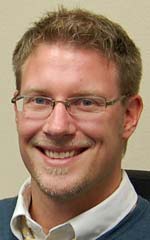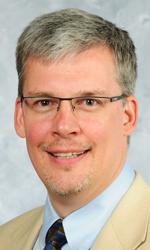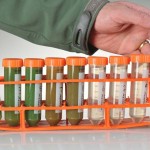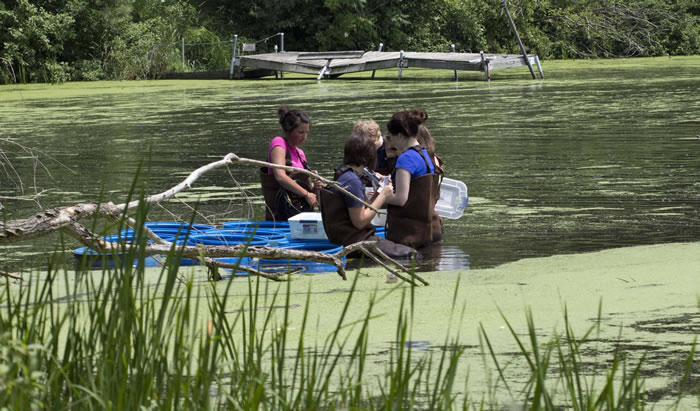Menomonie, Wis. — How about this for a summer job? Spend eight weeks studying the problem of phosphorous pollution in Menomonie-area lakes. The job pays $500 a week, with a transportation allowance, housing and meals at University of Wisconsin-Stout.
Plus, the job includes a mentor to help with getting into graduate school.
It’s not too good to be true. A $282,000 grant from the National Science Foundation will allow 10 undergraduates to take part in a new program called LAKES REU, which stands for Linking Applied Knowledge in Environmental Sustainability/Research Experience for Undergraduates. Two of the undergraduates can be from UW-Stout.
The LAKES REU program will run for three summers, starting in 2014, and is targeting minority and/or first-generation college students, as well as those with limited research opportunities at their home institutions.
Students and faculty mentors will study the root causes of phosphorous pollution through a variety of projects in the Red Cedar River watershed, develop possible solutions and offer students the opportunity to participate in cutting edge research.
“The goals of this project are to prepare under-represented undergraduate students for graduate school, to improve our knowledge of phosphorus pollution and mitigation in an interdisciplinary and innovative manner,” said Nels Paulson, assistant professor of sociology and a program co-director.
The program also is intended “to connect the community to the university here in west-central Wisconsin to ultimately improve our water quality and our community’s standard of living,” Paulson added.
The project will bring together faculty from across the UW-Stout campus, including biology, sociology, economics, anthropology, mathematics, geology and communications.
Chris Ferguson, assistant professor of economics and a co-director of the program, said that while the bulk of the money will be going to students, “indirectly we hope that the funding will also help us make an impact on the entire community as we gain a better understanding of the biological, economic and social systems at play in cleaning up the lakes and watershed.”
Phosphorus is a pernicious and costly environmental pollutant. In areas of intensive agriculture, lakes are toxic at certain times of the year with blue-green algae blooms because of phosphorus pollution. The problem affects Lake Menomin in Menomonie and nearby Tainter Lake, both part of the river watershed.
“Our ultimate goal is to generate data so we can make evidence-based decisions about how to clean up the lake,” said Stephen Nold, biology professor and chair of the UW-Stout biology department. “We will study all aspects of this problem, including root causes, watershed regulations, policy formation, economic impacts and treatments that improve lake water quality.”
The research projects include exploring the economic and social benefits of water resources in the watershed and the costs of mitigating pollution; identifying treatment approaches to reduce algae blooms and improve water quality; studying the sediment content to compile a history of the human, landscape and climate influences; exploring how specific phosphorous remediation policies have been enforced; exploring the social and cultural conditions of farmers in the watershed; and others.
“This grant award is a prime example of how our faculty members are willing to collaborate across all disciplines to address societal problems through student research,” said Chancellor Charles W. Sorensen. “The phosphorous pollution of our lakes and rivers is a serious environmental problem.”
The REU is UW-Stout’s second in three years. A $215,000 REU grant in math, also led by a group of UW-Stout faculty, is entering its third year this summer.
Two federal REUs are rare for a university the size of UW-Stout, said Ferguson, who also is assistant director of the UW-Stout Honors College.
“This will be a really fabulous learning experience for our students to interact and learn from peers from lots of other schools,” Ferguson said. “We have already received applications from students as far away as Maine and California, so we hope this will truly be a national center of student learning over the next few summers.”
Participating students will receive a $4,000 stipend over the eight-week period from June 15 to Aug. 8, housing in Red Cedar Hall, a basic meal plan for on-campus dining and travel expenses. More information is available at www.uwstout.edu/lakes.
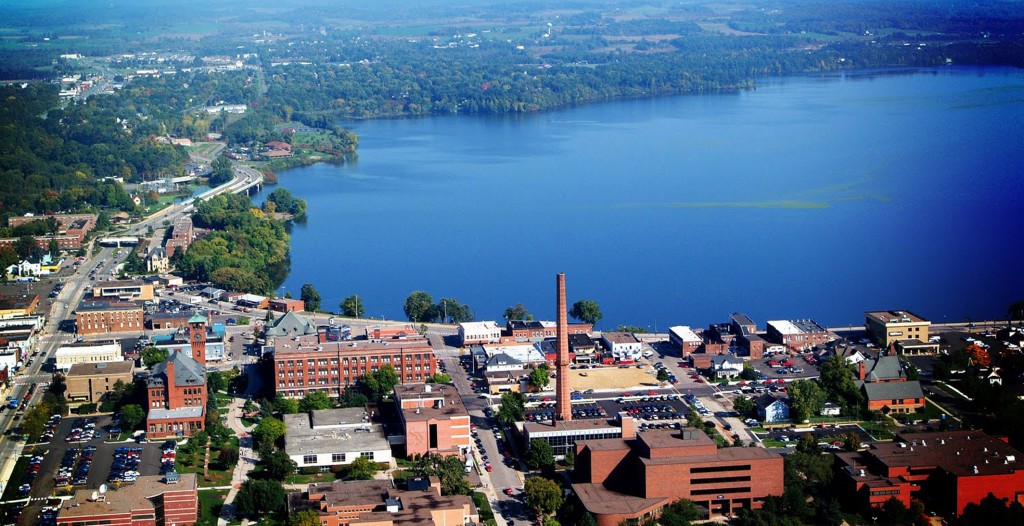
Lake Menomin, where phosphorous pollution causes blue-green algae blooms, is in the middle of Menomonie and on the edge of the main UW-Stout campus, foreground.

